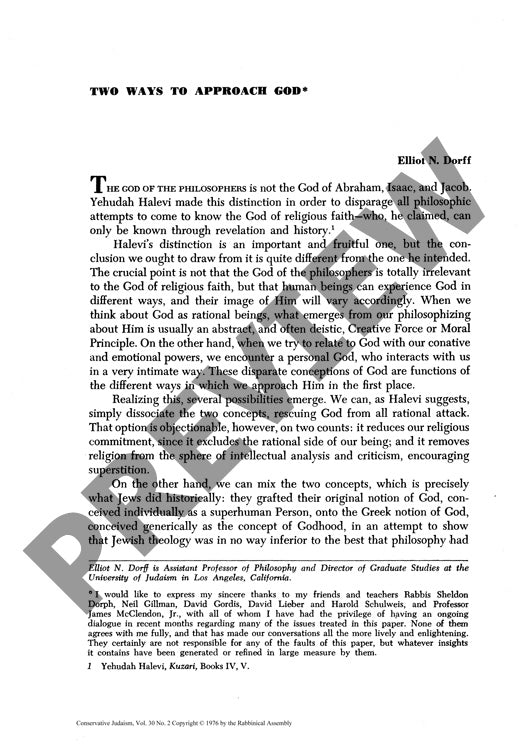Two Ways to Approach God
Couldn't load pickup availability
Can we truly know God through reason alone, or must we also engage through lived experience? The age-old tension between philosophical and experiential approaches to understanding divinity, first articulated by Yehudah Halevi as the difference between "the God of the philosophers" and "the God of Abraham, Isaac, and Jacob," reflects different human pathways to divine knowledge rather than irreconcilable theological positions. Through philosophical analysis and experiential methodology, two primary conceptions of the divine emerge: the superhuman phenomena beyond human control, and benevolent qualities manifesting goodness. Detached rational reflection typically yields an abstract conception of God as Creative Force or Moral Principle, while personal engagement produces encounters with an anthropomorphic, interactive deity. Rather than privileging either approach, an integrated methodology acknowledges both rational and experiential evidence while maintaining intellectual honesty about the limitations of human knowledge. This leads to an agnostic rather than atheistic position that validates personal prayer and relationship while avoiding dogmatic assertions about God's nature. Such an approach preserves the authenticity of Jewish religious experience while accommodating critical philosophical inquiry, demonstrating that intellectual rigor and devotional practice can coexist within a coherent theological framework that honors the totality of human experience.

More Information
-
Physical Description
-
Publication Information
Published 1976
ISBN
-
Publication Credits
Elliot Dorff

